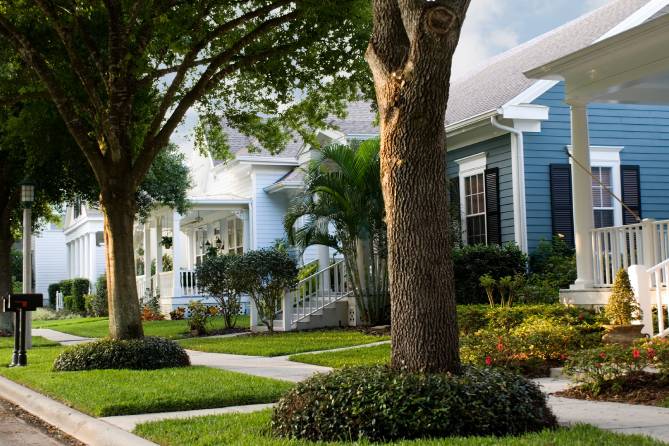Flood and Earthquake Insurance
A disaster can happen to anyone, anywhere, at any time. Don’t wait for a storm to hit or an earthquake to strike. Protect your home or business with flood insurance, earthquake insurance, or sinkhole insurance.
Helpful Tips:
Floods are the #1 most common natural disaster in the United States.
Standard homeowners and renters policies typically do not cover floods or earthquakes.
Stay Afloat with Flood Insurance
Did you know that flood losses are NOT covered by your standard home or business property insurance policy?
Only a specific flood insurance policy will cover home or business flood-related losses. Flood damage can be devastating and just because you don’t live in a high flood risk area, doesn’t mean it will never happen to you.
Almost 25% of all flood insurance claims come from areas in low- to moderate-risk flood zones.
Floods can be caused by:
- Flash floods
- Rainstorms
- Hurricanes
- Melting snow or ice
- River flows
- Tidal surges
- Water back-up caused by inadequate or overflowed draining systems
Flood F.A.Q
Just 1 inch of water can cause $250,000 of damage to your home.
According to FEMA, 90% of all-natural disasters in the U.S. involve some type of flooding.
What is the average cost for flood insurance?
The average cost of the National Flood Insurance Program is $707 per year according to the latest data provided by the Federal Emergency Management Agency.
The amount you will pay varies and is based on several factors, including:
- Your coverage amounts and type of coverage (federal government or private)
- The home’s age and build of your home
- Your home’s location
- Your home’s flood zone or risk
- Location of your home’s lowest floor and relation to the base flood elevation
While flood insurance in high-risk areas may be more expensive, it’s a worthy investment when you factor in the potential cost of being uninsured.
Is flood insurance required?
Mortgage lenders may require flood insurance coverage if your home is in a high-risk flood area and if it’s secured by a federally backed mortgage.
It is highly recommended that homes in moderate to low-risk areas still purchase flood insurance because floods can happen anywhere, and coverage can often be very affordable.
To help you understand the different flood risks in your community, click here to view your local flood map.
See how much a flood could cost you.
Earthquakes occur without warning – protect yourself.
If an earthquake strikes, will you have the financial resources to pay for damage to your home, business, and its contents?
Earthquakes can cause damage to your home’s foundation, collapsing walls, even destroying furnishing and belongings.
Similar to flood insurance, earthquakes are not covered under standard homeowners or renters policies.
Your home is insured for earthquake damage only if you’ve added an endorsement to your policy or bought a separate earthquake policy.
According to the U.S. Geological Survey, there are roughly 200,000 earthquakes each year.
Earthquakes can happen anywhere, but certain areas are much more susceptible to large quakes than others and they are typically concentrated in 42 states. Depending on where you live, it might be a good idea to purchase earthquake insurance.
Earthquake
F.A.Q
If you live in a high-risk area where earthquakes are more frequent and more powerful, you should get earthquake insurance.
What states are high risk for earthquakes?
There are 42 states at risk for earthquakes but there are 16 to be considered high-risk.
The states with the highest earthquake hazard from natural earthquakes include:
- Alaska, Arkansas, California, Hawaii, Idaho, Illinois, Kentucky, Missouri, Montana, Nevada, Oregon, South Carolina, Tennessee, Utah, Washington, and Wyoming
To help you understand the frequency of damaging earthquakes around the United States, click here to view your local earthquake map.
How much does earthquake insurance cost?
The cost of earthquake insurance is largely determined by the location of your home or business. Rates can vary significantly, from very affordable in lower-risk areas to relatively high cost in high-risk areas that are more prone to earthquakes.
Other determining factors include:
- Age of your home
- Number of stories in your home (including the basement)
- Framing materials
- Foundation materials
What does earthquake insurance cover?
Your earthquake coverage will vary depending on your carrier and factors such as the construction type of your property.
Typically, the standard earthquake policy will cover:
- Damage to your home (repair costs to rebuild your home and attached structures, such as a garage)
- Personal belongings (furniture, electronics, clothes, etc.)
- Additional living expenses (hotel bills when you can’t live in your home)
Looking to prepare for an eathquake?
Here is a list to help you prepare for an earthquake.
What is not covered by earthquake insurance?
Exclusions vary by insurance carrier yet some of the most common exclusions in earthquake insurance are:
- Fire. Even if the fire is caused by an earthquake. Your homeowners’ policy would cover those losses.
- Land. Such as sinkholes from erosion or other hidden openings under your land. You can typically add it to your homeowners’ insurance or buy separate sinkhole coverage.
- Vehicles. Your comprehensive auto insurance policy should cover that damage.
- Masonry Veneer. Such as the brick, stone, or rock used for your home’s veneer.
- Floods. You’ll need a separate flood insurance policy, even if the flood is a byproduct of an earthquake.
Flooding and tsunamis are common results of earthquakes, but their damage does not fall under earthquake insurance. A flood insurance policy would cover both of these events.
Sinkholes and Catastrophic Ground Collapse
Sinkholes are hard to predict, difficult to investigate, and are also extremely costly to repair. While the risk of a sinkhole is low, the fallout is potentially devastating to a homeowner.
Many carriers offer optional sinkhole insurance as an endorsement or a standalone policy that provides comprehensive protection against sinkhole damage.
According to the U.S. Geological Survey, sinkholes are commonly found in:
- Florida
- Tennessee
- Kentucky
- Alabama
- Texas
- Missouri
- Pennsylvania
Florida and Tennessee are the only two states that require homeowners insurance policies to cover catastrophic ground collapse, which covers a slightly different type of loss than sinkhole insurance. A loss that’s covered by catastrophic ground collapse must meet the following criteria:
- The ground must abruptly collapse.
- You must be clearly able to see the depression in the ground.
- Your property or its foundation must undergo structural damage.
- The government must condemn your property and require you to vacate.
Ask your agent today about adding an endorsement to your policy!
Additional Coverage
Homeowners' Insurance
Homeowners’ insurance helps protect the place you call home. Get coverage based on your home’s value & risk factors.
Life Insurance
Protect & guarantee your loved ones are taken care of & have financial security should something happen to you.




